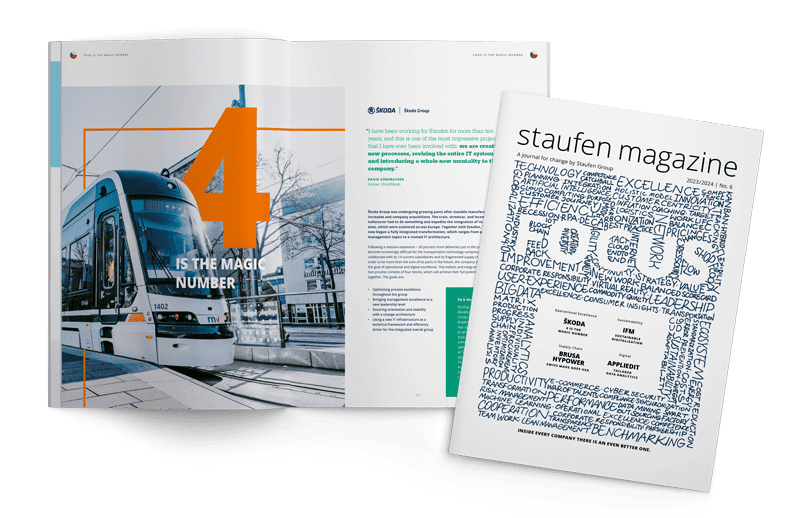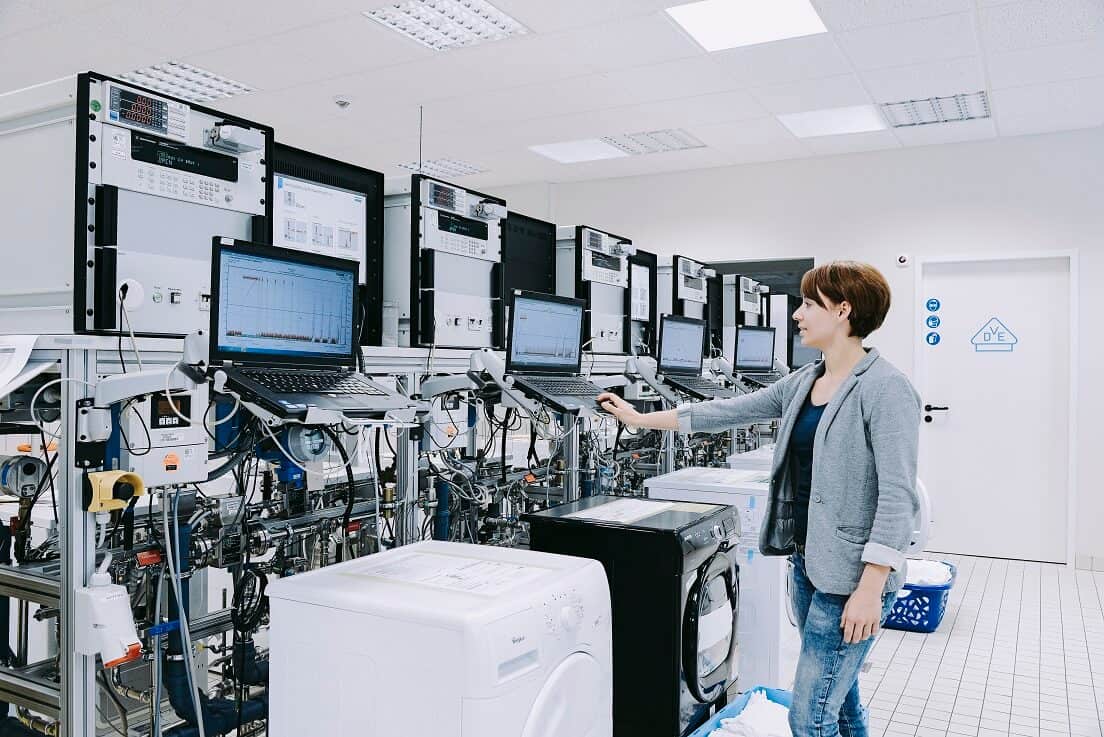
Innovation as the core of the brand
The VDE is one of the largest technology organizations in Europe and well known in the electrical and information industries. It makes an important contribution to product safety, the further development of standards and consumer protection. Its tasks include scientific work on electrical engineering and information technology and application advice, the development of standards and norms and the testing and certification of components, products and systems in electrical engineering and information technology.
Innovation is a brand core of the VDE. It works with the relevant standards committees and provides more than 3,500 valid standards in a variety of areas. The VDE Testing and Certification Institute (PZI) is a premium provider of test certificates. The famous VDE mark, which has just turned 100 years old, is only given to products and components that have successfully passed the testing process of its technical laboratories (TL).
There is no comparable organization in the world with such a broad value chain. The carrier of this value chain is a non-profit organization with a remarkable cross-section, as VDE CEO Ansgar Hinz emphasizes: “This ranges from technology screening to the professional societies to the standardization organizations and the testing and certification institute with its laboratories.” Other areas include the publication of the knowledge gathered as well as events that promote qualifications in school, university, and work. Behind these areas are companies that are exposed to the sometimes strong competition in their specific market environment.
Change process: Enormous degree of perseverance and consistency required
The special feature of the PZI is that it is, on the one hand, a business with classic production, which is made measurable using certain KPIs. On the other hand, due to international regulations and normative constraints, it is subject to many processes that lead to limited degrees of freedom in process design. In cases of doubt, standard methods must therefore be modified and adapted to specific needs. Added to this is the burden on the employees who manage the day-to-day business and at the same time not only accompany the change operationally, but also have to lay the foundations for it. Faced with these challenges, the VDE decided to bring in technical expertise from outside and turned to Staufen.
“The change process is currently in full swing,” says Ansgar Hinz. “This requires an enormous degree of perseverance and consistency.” Marcel Hülsmann, business and project manager at the VDE, adds: “In the past, some approaches have been made, but not implemented with the utmost consistency. It was therefore a major challenge to make it clear to everyone: No, we are serious, we want to optimize the organization in the interests of our customers, consistently and with the help of the enormous specialist knowledge and high level of expertise of the employees”.

Ansgar Hinz
Chairman/CEO
VDE-Foundation of electrical engineering electronics information technology e. V.

Ansgar Hinz
Chairman/CEOVDE-Foundation of electrical engineering electronics information technology e. V. Read more

Sebastian Nett
Associate Consultant
STAUFEN.AG

Sebastian Nett
Associate ConsultantSTAUFEN.AG
Sebastian Nett was able to gain experience with the holistic approach of lean management during his studies at RWTH Aachen and KTH Stockholm. During his internship in project management at Daimler AG, the theoretical skills could be used in practice. He was involved in steering column development for various model series. He wrote his master thesis on the evaluation of product allocations in the design of global production networks at the WZL of the RWTH Aachen University. After graduation, he supported Tier1 customers as an application engineering consultant regarding the matching properties of connectors and terminals.
Since 2018 Sebastian Nett has been a consultant for Staufen AG, supporting his customers in holistic lean transformations in the electronics and automotive industries. He analyzes processes end-to-end by using value stream analysis and design, reduces complexity in production processes through suitable segmentation of the underlying product portfolio and designs and optimizes production and logistics processes of the product value streams.
Creation of meaning and communication as the basis of the change process
Staufen consultant Sebastian Nett attached particular importance to creating meaning: “The VDE had been involved with lean for a long time. Now those responsible at the PZI wanted to take the next step on their lean journey. But if you don’t manage to show employees the added value and the advantages of it, it becomes difficult.” Concepts were developed in workshops and many good conceptual drafts that had been developed in the past were used. This was followed by content-related discussions with the various management levels and experts in individual areas. All of this was characterized by broad-based communication.
Structure follows processes – the new way of order processing
In the past, an auditor supervised several projects at the same time, including order clarification, preparation of an offer and implementation of the audit. There were no clear criteria for prioritization. The result: many test orders that have been processed, multiple mental preparations or repeated familiarization with the respective topic, which led to a suboptimal project flow with longer throughput times when processing the projects. To improve the situation in terms of lean, the focus was on optimizing the order processing process in an ideal/real approach in order to then realize further potential with suitable digital support.

New structure, measurable improvements
The numerous good ideas from the previous VDE improvement initiatives on the subject of order clarification and order processing were further developed with the help of Staufen and the VDE experts. One innovation is the “Technical Front-End” with customer project managers. Based on their extensive knowledge of standards and requirements, these experts clarify with the customer what needs to be tested and create a precise offer, view prerequisite articles and only approve orders that are ready for testing for testing in the laboratory. Together with the VDE project team, Staufen has defined this essential clarification process with milestones and described quality checkpoints. At the key interfaces of the process, this forms the basis for fast and efficient deviation management (Shop Floor Management) according to the target/actual delta logic. Based on this target process with control principles according to the pull principle, the order planning tool already developed by the VDE was set up on a digital basis and thus also replaced the classic push system. This order planning tool enables a very high level of transparency of the entire process and provides detailed information about the complex order landscape.
In addition, a number of other technical innovations were developed, the Shop Floor Management was brought to an IT-based platform and newly designed technical laboratory workplaces were created, which are now to serve as a blueprint for further laboratory workplaces, especially in the planned new building for the test laboratories.
The effort was worth it: For example, the order throughput time was reduced by an average of 20 to 30% and the throughput time of test orders by 15 to 23%, and adherence to delivery dates was increased by up to 30% in some cases. These improvements have all been received very positively by customers.
The cooperation with Staufen is also very positive. “Especially when the organization and the employees have already seen one or the other consulting company, it is all the more important that the consultants fit well into the team. And that is definitely the case at Staufen,” says Marcel Hülsmann.
Project Metrics
- Reduction in quotation processing time: 20 to 30%
- Reduction in test order turnaround time: 15 to 23%
- Increase in on-time delivery by up to 30%
The company
1893
Foundation
2.000
employees
60
locations worldwide
3.500
norms and standards
Request the English Magazine now as a digital or print version

You might also be interested in

“We already made it to Industry 3.8“
TRUMPF is on its way to transforming itself from a classic mechanical engineering company into a provider of holistic, smart customer solutions. More employees are already working in developing software solutions for networking in the company than on hardware. In addition to digitization, the company also focuses on sustainability and sees growth in sheet metal processing as an alternative and energy-saving construction method for components over the next few years.
Read more
Lean Management: The path to winning mentality
The Binder family company shows how lean management can not only make you better and faster, but also inspire employees and customers. Our current study “Future Industry 2023” also underlines how effective lean management is for companies to develop more resilience despite cost pressure.
Read more
Operation Management, Produzione e gestione dell’Ordine
There is hardly any other corporate function in which employees can be taught the role of added value and waste as practically and quickly as in production. Optimization is used as the basis for helping Lean philosophy permeate the entire production process, and from there it affects the whole company.
Read more


